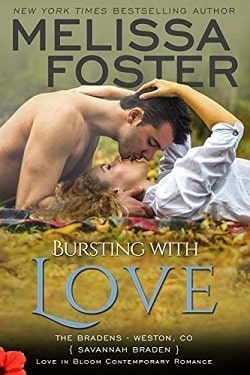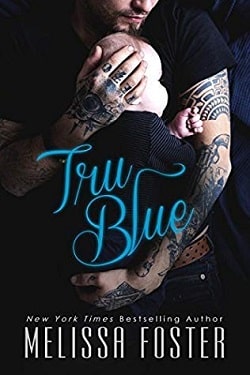Page 79 of An Accidental Meeting
“I married a very wise woman.”
“Not so wise, perhaps, but very much in love.” Elizabeth looked up at him, her eyes filled with affection.
Darcy felt his cheeks warm. “With me, I hope.”
Elizabeth shook her head. “Who else?” He opened his mouth to reply. “No,” she said warningly but with an impish gleam in her eyes, “do not answer that.”
Only Elizabeth could make him behave in such a way. No other woman would have inspired him to childish behaviour merely for the chance to make her laugh. He would never be able to do so in company, but when they were alone . . . Of course, there were other things married couples could do in private to demonstrate their love for one another, and judging by Mrs. Darcy’s current condition, he thought he had done a creditable job.
Elizabeth stood carefully. At more than six months gone with child, he still thought her the most handsome woman of his acquaintance. “Shall you escort me upstairs to change for our outing?”
“I would be honoured,” he told her, standing to offer his arm.
Later, as they were about to step outside for their walk, Mr. Rhoades stopped them, an uncertain expression on his face.
“Sir,” he said, “the gatekeeper says a carriage is on its way.”
Elizabeth turned to him. “I thought your Darcy family would not be here until tomorrow, and unlike the rest of them, Caroline does not like to arrive early. There is always the chance that she might have to wait a half hour for her room to be prepared.”
Darcy lifted his shoulders. “I do not know who it could be, but perhaps Mr. Rhoades would?” He turned to the butler, who was waiting patiently for them to finish their conversation.
“The gentleman says, sir, that he is Osmont D’Arcy.”
May 1818
Darcy could not recall the last time there were so many people in Pemberley at one time. Bingley and his wife were here with their two girls, along with the Gardiners and their six children. Uncle Hugh and Aunt Nora were here with Alex and Caroline. Though Uncle Hugh was physically slower these days, his mind was as quick as ever. And Aunt Nora was in her glory with two little grandchildren of her own, one boy and one girl, to dote upon. Though there were twenty years between the former Caroline Bingley and Darcy’s cousin Alexander, their minds were so similar that the years did not matter much. Besides, the former Miss Bingley was still the more responsible of the two.
And the D’Arcys were here as well. Osmont, not willing to trust that Napoleon would stay on Elba any longer than the Treaty of Amiens had lasted, had immediately booked passage aboard the first ship he could find and brought his family, at last, to England. By the time he stepped foot on British soil,Osmont D’Arcy had decreed that his entire family—his wife, three married sons, and four grandchildren—would henceforth sign their names as Darcy.
Mrs. Reynolds was here, though she remained at the back of the crowd. She would be retiring soon, after thirty years of service to the Darcy family and to Pemberley, but Elizabeth had made a point of inviting her.
He loved his wife more deeply than he had ever thought possible.
“Are you ready for the unveiling?” he asked the assembled group.
There were murmurs of assent.
“Very well, I give you the Darcy family portrait.” He pulled the sheet away from the portrait. A moment of silence was shattered when everyone began to speak at once.
It truly was a magnificent effort, larger than any other canvas in the house and done in very fine strokes. The entire family had been sketched in a few at a time, so no one had known what the finished painting would look like. The background was Pemberley, as it was the family seat, but twenty-five Darcys—including Georgiana and her husband, though they were not actually Darcys—stared out from the canvas.
Darcy was particularly fond of the artist’s rendering of his wife, for while the exact expression he so loved in her eyes could never be adequately replicated, he had managed to copy their shape and colour as well as her remarkably fine lashes, all done in tiny strokes. Their daughter Jane stood between Elizabeth and him, his son Fitzwilliam still a babe in his mother’s arms. The boy was walking on leading strings now, already appearing a different person from this image, so quickly had he grown. But Darcy was thrilled beyond measure to have suspended a moment in time when his marriage and family were new.
“You look like a blob, Silas,” one of the girls said, blowing her cheeks out and holding her arms away from her body. Isabella, he thought, one of Osmont's grandchildren. Her brother Silas had been a little heavy at the time of the painting, but he had since sprouted up, as children were wont to do.
“And you look like a scarecrow,” Silas retorted, pretending to study the painting. He turned to her and sucked his cheeks in until they appeared hollow. “The likeness is astonishing.”
“May we go out to the laboratory now?” asked Frederick, Osmont's oldest grandchild. “Cousin Alexander, may we?”
After a particularly malodorous investigation into the properties of fertilizer had required a thorough scrubbing of a room at the back of the house, Elizabeth had suggested erecting a separate building for the performing of experiments. Somehow, Darcy’s modest plans for a small shed had transformed into an actual one-room laboratory with stone floors that could be easily washed down and windows that could be opened for the crossflow of air. The walls retained the colours of many failed chemical tests, but its existence kept the house free of noxious fumes and made Pemberley a favourite destination for the children.
“We have a test that we shall set up tomorrow,” Mrs. Caroline Darcy said.
Alexander smiled at his wife. “Are you agreeing to the Galvani experiment?”
“I am not,” she shot back. “It is unseemly, Alexander. And frightening as well.”
He chuckled. “Very well. We can try to replicate Sir Humphrey’s latest research.”















